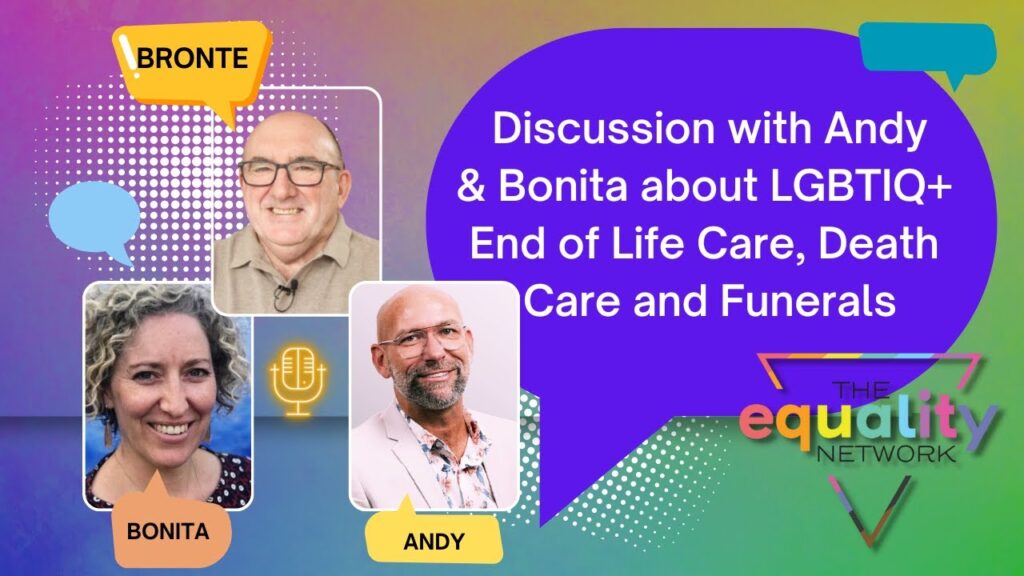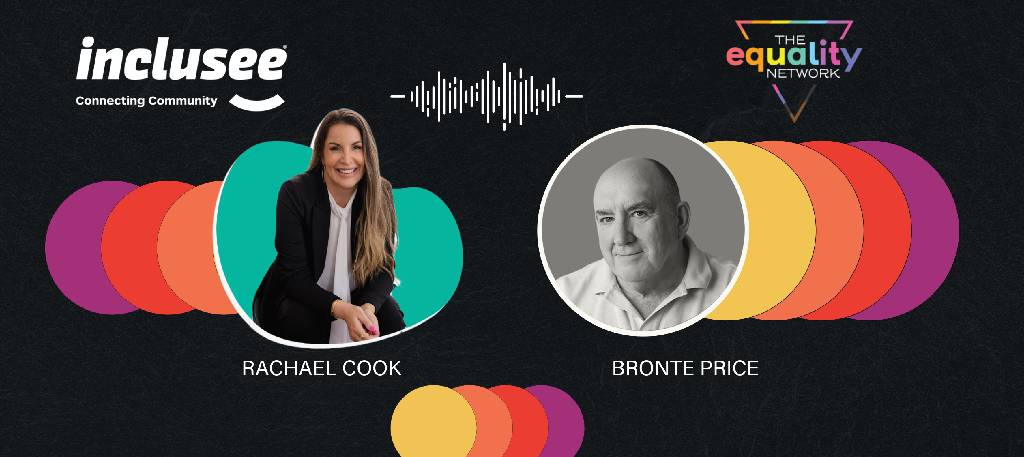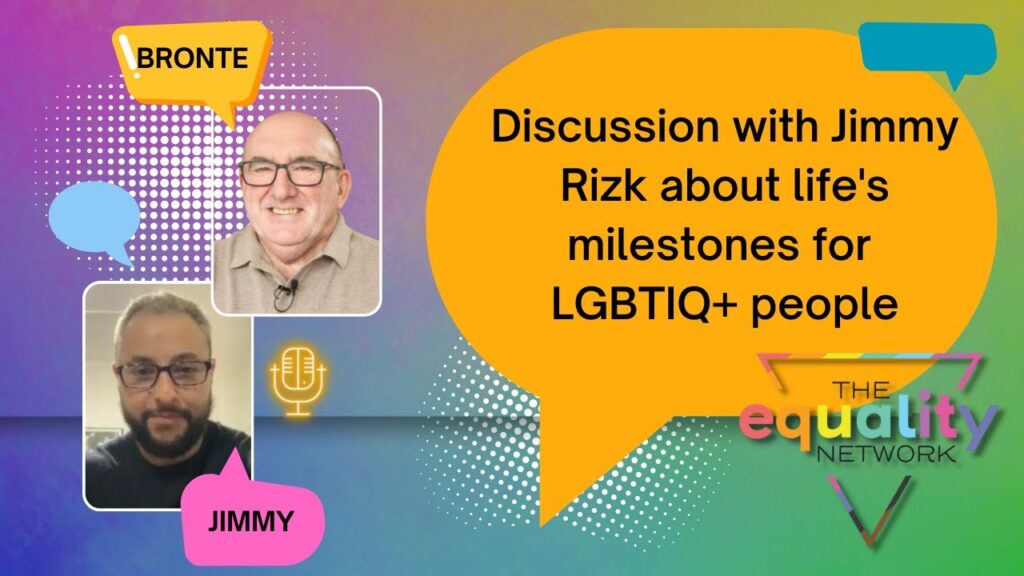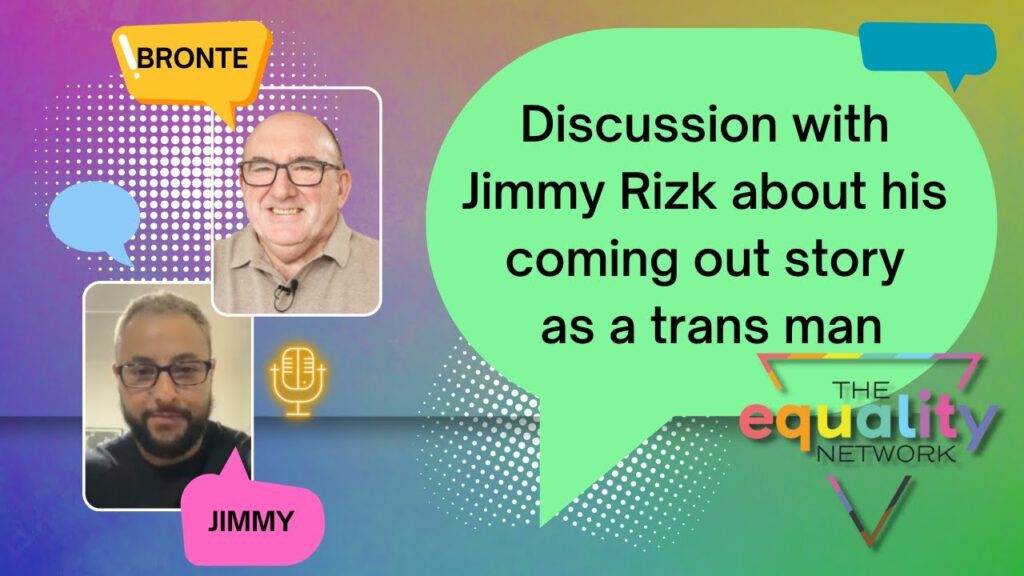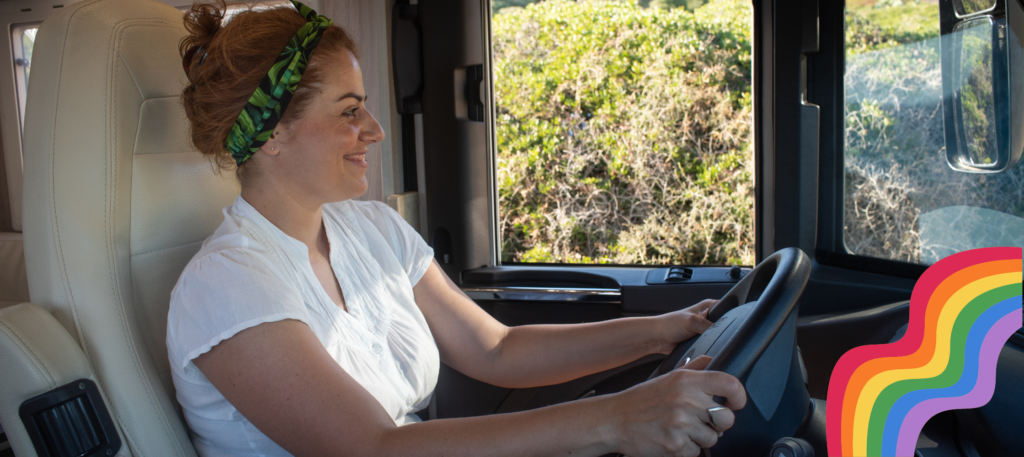Discussion with Andy & Daniel about their journey of gay parenthood as Gay Fathers
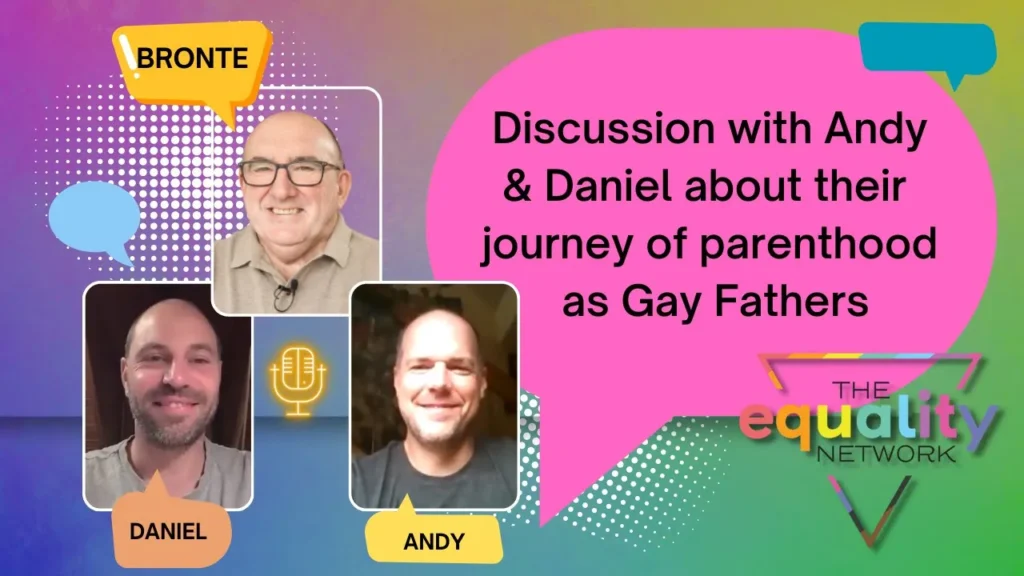
What’s it like to be gay fathers?
In 2019, I married two gay men from Germany, Daniel and Andy. They came to Australia to get married in front of close friends. Accompanying them was a lesbian couple, one of whom was the biological mother of Daniel and Andy’s son, who was then aged 5.
Since then, Daniel and Andy have embarked on their journey of gay parenthood & doubled their family, with the arrival of a daughter, now aged 2. In this interview, Daniel and Andy talk about a range of experiences they went through in their journey of gay parenthood in a dynamic and flexible extended family.
The interview meanders across the following discussion areas:
- An introduction of themselves, their 22 year long relationship, their children and the lesbian couple who are mothers of their children
- The importance of really knowing the women who are to be mothers of your children
- The living arrangements of Andy, Daniel, the children and the mothers – and how often the children see the fathers
- Spending time with the children – how that happens
- The keys to working out successful parenting arrangements
- Was it always part of your life plan, as gay men, to have children?
- The options for gay couples to have children – adoption, surrogacy, IVF etc.
- The importance of having role models to enable you to see the possibility of being gay parents
- The best things about being gay fathers and being part of a queer family
- The responses of blood family members to Daniel and Andy being part of a queer family
- The practical, documentation, legal issues and questions
- The issues associated with grandparents having grandchildren who are / are not blood related
- The challenges of being gay fathers – are they the same for all parents?
- The practicalities of being part of a queer family – organising and coordinating your lives
- The biggest surprises of being gay parents
- The real meaning of the concept of ‘equality’ in a queer family
- The greatest fears of gay fathers – tolerance, etc.
- The importance of creating a supportive family ecosystem
- The benefits in the workplace of being a gay parent – the legal implications of being ‘official’ parents, or not
- The things gay fathers most look forward to, for their children, in the future
- Advice to other members of the LGBTIQ+ community who are considering becoming parents
- Important practical issues to think about when beginning to plan becoming an LGBTIQ+ parent
- Asking those hard questions before committing to becoming queer parents
- The importance and symbolism of Father’s Day – Germany compared with Australia.
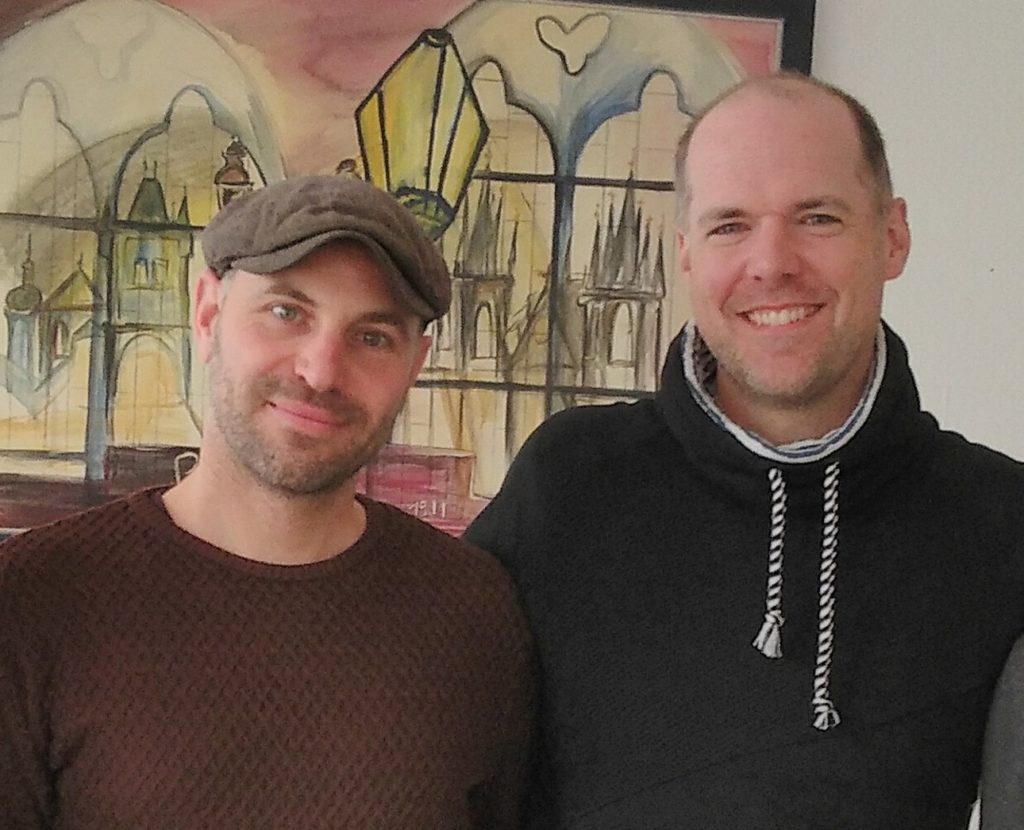
The full interview transcript
Bronte: Well, welcome to this webinar put on by the Equality Network! I’m Bronte Price, I’m a cisgender gay guy and part of the added bonus of being a member of The Equality Network of course is that we conduct a whole range of webinars on a variety of topics that are relevant to the LGBTIQA+ community. And so as we come towards Father’s Day in Australia, I thought what better thing to do than to interview two men who were actually married in 2019 and who are gay fathers.
So, all the way from Germany, let me introduce Daniel and Andy! So, welcome to both of you. Let’s start perhaps getting to know you, tell us a little bit about yourselves, a little bit about your family, your children please… who’d like to go.
Andreas: Daniel, you start!
Daniel: Yeah, I’m Daniel and I’m married obviously to Andy, actually a couple of times. Well, we’re a couple since nearly 22 years now and we married for the first time with the German institution or marriage-like institution in 2011.
And then again in Australia luckily with Bronte who married us and then we transformed our German “kind of marriage” into the “German Real Marriage” which was then allowed since 2017 and we are a queer family.
Not only us two, but we have two kids together with two women who are also a couple and that’s basically the general setting.
Bronte: Andy, do you want to add anything to that? And tell us a bit about both of you would be really nice to hear. What you do for jobs and we’ll start with firstly Andy perhaps.
Andreas: Okay, so I’m an ophthalmologist and yes, Daniel told you we’re a couple since a long time, and also the mums are a couple since a long time. We know them for longer than 20 years.
So, that was a pretty good situation for us that we knew them way before we made plans for them to have children together. Daniel told you we have two kids. Our daughter just turned 2 in April and our son turned 8 in February, so, he’s the Big Brother.
Bronte: Wow
Andreas: Yeah
Bronte: So, tell us how the interaction occurs with the two mums, please.
Daniel: Basically, the two kids are living with the mums. So, we live in two separate cities in the southern part of Germany and we are about one hour of drive apart. That was our commitment from the very beginning, that the kids will be living and be raised and go to kindergarten and school where the mums live.
But, we see each other in various combinations on the weekends. So, actually, there’s no weekend that we don’t see the kids or the mums. So, it’s also not the case that the kids come to us and we don’t see the mums.
So, it’s not like that, so we are mainly together on the weekends except for holiday time, which is right now. So, we have to spread our leaves so that we have to cover all of the six weeks of summer holidays and the kindergarten closing times.
But we feel as one family, during the week, during working days– the kids are with the mums and other than that we share spending time with the kids.
Bronte: Andy, has that been an easy routine to get into for all of you?
Andy: Well, it just developed like that. So when we made the first plans in 2012, we thought maybe we see each other every second or third week but in real life, it didn’t happen. We just had to see each other more often.
Our son wanted to see us more often and we wanted to see the family more often and then it just turned into a weekly thing that we see each other on nearly every weekend and during holiday times. So, we do a lot of things together, we travel together, we’ve been in Australia together with our son and the mums.
So, it’s not really strict that we say this weekend every second or third weekend we see each other, we plan from weekend to weekend and so sometimes it’s the case that someone of us is on a congress or I don’t know. Then, we don’t see each other but most of the weekends, we do things together and we all like the situation.
Bronte: So it sounds like flexibility is a pretty key word there!
Andreas: Yeah yeah
Daniel: Yeah yeah
Bronte: Okay, has having a family always been part of your plan? Was that, even as a younger person, always what you were thinking of? That you would someday have children?
Andreas: Well, for me it was always an option to have children. I really liked the idea to have children but I didn’t really see a way to get it done somehow because adoption was not allowed until 2017. So, that was not an option.
Adoption from another country was really really hard to be done so the chances were really low for a gay couple. Surrogacy wasn’t really a thing I really wanted to do in the beginning. I thought that was not a good thing. I changed my mind now but in earlier days I thought, no I don’t want to do that and so there wasn’t really any plan for having a family.
I talked to Daniel a few times about having children but we both didn’t really make plans for having children because we didn’t see a way.
Bronte: Daniel, was that the same for you, pretty much?
Daniel: I think the desire to become a dad was a little bit stronger with Andy in the beginning. I never said I don’t want to be that but as Andy said I didn’t see a way or we didn’t see a way to do that, to accomplish that and so I didn’t think much about it.
But I’ve always liked kids and so that was not the issue to convince me that I want to be dad but it was not as present as it was for Andy in the beginning.
Bronte: Some of that also is the lack of role models of being able to see out there in magazines, in TV shows, and just in the general population – other gay parents, I think. No matter how the children were conceived.
In Australia, it’s now quite relatively easy for anyone regardless of marital status, regardless of sexuality, or gender identity to adopt or undergo in vitro fertilisation or to undergo surrogacy and so that’s quite a major step forward. Is it the same now in Germany for people?
Andreas: We do have the right for adoption like gay couples. I think for single gay people or singles, it’s still really hard to do it but they are allowed to do it. Surrogacy is still not allowed in Germany, you can’t do it.
Bronte: Okay
Andreas: You can go to a foreign country. You can go to the US or to Canada to do surrogacy but it’s still not allowed in Germany and they still do not plan to change that in politics.
Bronte: Okay. What’s the best thing about being fathers and being gay?
Daniel: You mean in that combination or separately?
Bronte: Oh I think. It’s a combination personally.
Daniel: I thought about this question before and if you see it separately, I’m not especially proud to be gay or what I find good to be gay but in the combination I’m really happy that I can be gay and be a father at the same times, that we were able to to build a community, a social environment– that this can happen!
For every individual of us, four parents is settled enough, to be ready for such an adventure which it is at the beginning because you don’t know how your personal environment reacts and so in that way I’m happy to be a father and gay and that it works out.
Bronte: Thanks, Andy?
Andreas: Well, I have to admit I am proud to be a gay dad because it’s a harder way to become a dad. So you have to really make plans for it, how it can work. A heterosexual couple doesn’t have to do it, it just happens most of the time.
So, I think it’s a great thing for me to have the opportunity to be a gay dad and I can say I’m proud of it and I’m proud of my family that we live our lives openly and present to all our family members and to the people around us so we don’t hide us. Actually, it’s the opposite, we let everybody see that we’re a queer family and that’s good.
Bronte: And it’s a very special thing that you’ve constructed. That kind of queer family with not only the children and both of you but also the mums as well. That’s a very special thing to have constructed really. How do your other family members receive that queer family? They’re embracing of that?
Daniel: Yes, it was a little bit funny because it reminded me of the time when I had my personal coming out and first there were the fears like, “oh you’ll be home alone until you’re old”, and you know the things. But that was over and we’ve been a couple for that at this time more than for 12 years. This was over then and then we said okay we want to have children and the very first reaction was also a little bit of fear. “Oh, how will the environment react to the children when they reveal that they have two dads and two mums”.
So, thinking of the children, whether they have will have problems later and yes, we thought of that as well, so, how would we deal with that situation. But in the end, everybody had at least nine months of time to prepare for the situation that there will be a kid and in the end nearly everyone was looking forward.
But still after the birth, it was that the grandparents I think had to find their way because not everyone was blood related to the grandchild and so on. So, there was a little bit of time until everyone was really finding its role but by now it’s [fine] and also very quickly after the birth of our first child it was no discussion or not an issue.
Bronte: Andy, do you want to add to that?
Andreas: Yeah, I could add that all our family members and the whole environment around us reacted really really great. So, everyone liked the idea. My parents, when we told them, they were crying and I think it was similar to with Daniel’s parents.
So, they never expected to have grandchildren from our side and so it was just a big thing for them that when we told them we want to have children and everyone liked the idea.
A bit later, they came with all the questions– how will it be, where will the grandkids grow up, who will have, I don’t know what the English word is. Daniel, do you know that..yeah, a child can only have two official parents in Germany. You can’t have four, so, who will that be? Will that be the blood related parents or will it be the two mums or the two dads?
So yeah there were a lot of questions and our parents had these questions as well. So at first, the reaction was fantastic and then a lot of questions came.
Bronte: And that’s fantastic that those were questions that were positive ways in which they were just exploring this construct that they’d never been involved with before and never seen before probably. And it was their way, I think, of just working through that and trying to explore that with you by the sounds of it and it sounds like right now they’re completely on board and doing the grandparenting thing. Is that correct?
Andreas & Daniel: Yeah, yes!
Andreas: So now the situation is that the grandparents all have a grandchild that is blood related to them so yeah and our kids are siblings so they are just– they all are grandchildren to our parents so they don’t make any difference.
Bronte: Yeah, it’s pretty good. It’s a really beautiful opportunity to educate the wider community, you know, their friends, their families as well more broadly about what a queer family is and what a queer family can look like and they can talk about that with some pride but also some lived experience I think so you’re changing a whole range of lives by the sort of parenting that you’re doing here.
Can I turn to some of the challenges and I guess this is just as parents not necessarily as gay parents but what have been some of the challenges of being– let’s do the combo of being gay parents, of being gay dads?
Daniel: I think..
Andreas: You go first..
Daniel: No, go ahead
Andreas: I think there’s not a big difference of being a gay dad or a heterosexual that it’s the same questions. How do I raise my kids, what do I allow them to do, what are the rules in the house and in the garden and everything and I think that’s not a big difference actually. Do you think that there’s a difference, Daniel?
Daniel: No actually, it’s the same questions– raising a child for everyone. Still, we have to, um, as we have four parents, we have to incorporate more opinions as parents and we have to perhaps discuss a little bit more or to decide and to come to a solution a little bit more openly than perhaps it happens when you’re only a couple or two of us.
So, we need to talk about compromises also if you have appointments and events and everything we are planning for holidays so you have to have a bigger effort to organise stuff but well we’re used to it since eight years now. So that’s everyday life so that’s what what I would add to that.
Bronte: Okay and there have been times I think where the children or at least one of the kids have been with you for some period of time, would that be right as part of school holidays and so on?
Daniel & Andreas: Yes yeah yeah.
Bronte: Okay yeah
Daniel: And then we have six weeks of school holidays in summer and it’s actually a luxury because I think many parents struggle to cover all of the holiday times of their kids and so we have four opportunities to cover all the holidays, not only in summer.
On the other hand, we also have to coordinate with our employers and everything so that it all fits together but yes there are times when the mums have the two kids for a while in the holidays and there are also times when we both have the kids and yeah that’s also special times because it’s more intense and less dependencies on organising stuff.
So, it’s also a great time if we have that several times a year
Bronte: And it’s 24×7, right? So they’ve got two and you’ve got them for 24×7 for a certain period of time which is fabulous, I think.
And you were talking earlier just before we came live about a funny sort of instance around breastfeeding if you want to tell us a story, please.
Daniel: Yeah well, Amelia was breastfed until July this year and actually was still breastfed when Andy and I had to organise the time, the exclusive time, with her and our son together because the mums had to work and we had plans to go on a vacation with friends in Austria with the two kids and so I was quite a little bit nervous of how that might work.
We did a test two weeks before our daughter stayed overnight with us without the mums who were nearby, you know, now just in case of emergency but it went all well. But the funny part was when Andy brought Amelia to bed she was asking for the breasts and pointing at Andy’s breasts and then now it won’t be working and gently pointed to the other breast and it now won’t work as well and then she asked, “what’s up, Papa Daniel?” Now that won’t work as well and after a short second of disappointment, Andy offered a glass of milk and okay and so that was it and we never had a problem and I was very relieved because I was a little bit nervous about how that will be when we’re together with her or with the kids for a week or two but in fact she rarely or at least never asked for it again.
Bronte: What’s been the big surprise of being a parent for both of you?
Andreas: Good question, what’s been a big surprise, hmm?! You never know what to expect when you become a parent because you have never done it before.
For me, a surprise was, um, so our son is not my, it’s not blood-related to me and I never knew in the beginning how my connection to the kid will be and if the other three parents see me as an equal father to Daniel. So that was really a thing where I thought, oh will it really be like that that everyone is equal, every parent is equal.
And, um, with time, we all saw that the biological mum– she has a special role because the kids were breastfed for a pretty long time so there’s a really strong connection to the kids to their biological mum but the others are totally equal. So, there’s no difference.
So that was surprising to me that we could manage that everyone has the same rights and that was cool.
Bronte: How about you, Daniel?
Daniel: Actually, perhaps what surprises perhaps a little bit much but two observations that really are great to see them now– the one thing is that the two kids are so different, so, also we raised them the same way.
At least we believe we raised in the same way and they are totally different characters and that’s so funny and great to see and also you can just distinguish the personalities and that’s great to see and the other thing is that what everyone talks about is this unconditional love that children give you and also the trust that they have in you as parents and to see that and to really experience that– this is really sometimes wow.
This is very emotional and reminds me of my responsibility and which I am more than happy to take you know.
Bronte: Kind of redefines that whole saying around it takes a village to raise a child like you’ve got your own village in a way but you’ve got this broader village as well that happens.
I think it’s also the case that even in straight families even though people say I remember my
parents saying to us well, we brought you all up the same way but you know
there’s this nature versus nurture thing isn’t around, that there’s this genetic personality thing that happens. And no matter how you bring the kids up, they’re going to be different from each other, which is kind of a job.
Andreas: And what I find so surprising is that they have their personality from the very first day – from the very first day they were different and it stayed like that.
So, Toby was a really calm kid when he was born and he stayed like that. He’s still a convoy and Amelia is totally different from the very first day so that was absolutely surprising.
Bronte: This is kind of a hard question, I think. As gay fathers, what’s your greatest fear as your children grow up? Daniel?
Daniel: Um, actually my greatest fear is, how will the social environment of the kids react once they get older and depending on which schools they go to and which also contacts they have and will they be as supporting and tolerant and accepting as we hope that will be?!
We have the hypothesis that we raise them in a way that they can be proud of what kind of family they are. Toby is now saying he wants to be a part of it, he wants a creative queer family himself because he finds that so cool. Well, he doesn’t, well, he’s eight.
But, we know how mean children can also be to each other and I just hope that this tolerant environment will stay until they’re adults and that they don’t get disadvantaged by anyone who doesn’t approve of this family situation.
Bronte: Andy, how about you?
Andreas: Actually, I don’t, sounds strange, but I don’t fear anything. I’m always a positive person, I don’t think they have disadvantages and I’m pretty sure that there will be some kids telling him or Amelia strange stuff but I’m very sure they can cope with it.
So for my kids, I actually don’t really fear anything because they are in a gay or a queer family. Not really, not here in Germany. We made such good experiences with the people around us so I can’t imagine anything really bad can happen.
Bronte: Yeah and part of parenting ideas is giving your children the skills and the tools to be able to deal with any of that angst or phobia that comes with being part of a queer family I guess as they get into teenage.
Particularly, I’m wondering whether at work, do you get treated the same, do you get the same benefits as straight parents or is that kind of– let’s generalise it– do queer parents in Germany get the same benefits at work as other parents.
Andreas: Um, not really because as I told you before, the kids can only have two official parents and we decided that the mums will be the official parents so they have all the benefits. They have all the benefits just like a heterosexual couple, that’s totally the same.
But for Daniel and me, we have actually nothing. We’re not even related to our kids anymore, which I find is really sad but there was no other solution for us to do it like that.
Maybe, there is a way to have more than just two parents for a kid but up till now it’s not possible. So that’s the official thing but our employers, is it employers?!
Bronte: Yeah.
Andreas: They were really nice. So when Toby was born, my boss said to me, “if it becomes really urgent you can go every time you want”, even though he knew it’s not my biological kid.
He said, “if the mums call, you just go”, same with Daniel. So that was really cool but that was not an official thing. That was just between me and my boss.
Bronte: Yeah, thank you! Daniel?
Daniel: Yeah well, the legal situation is as Andy explained but also my employer was also very flexible. They knew what was happening and I was in an IT consultancy and working with a customer at this time and even the customer where I worked with was aware of the situation so that I can also immediately go and when Toby’s being born.
So, as we lived the situation or took it as normal about what’s happening, no one dared to not take it normal as we do because we didn’t make a special thing out of it.
We just said, “yeah I’m becoming a dad and I need this.” This freedom to go to the birth and so come on and so it was no discussion but everyone was also supportive and we also got the same presence from my colleagues or from the employer as others did.
So, on the social side also, with my colleagues, there was no difference. But on the legal side there are some differences, yeah!
Bronte: And that legal or bureaucratic change is starting to happen slowly in some jurisdictions. We know that there’s been at least one throuple if you will in, I think, it was in the UK where all three fathers are now on the birth certificate.
So, slowly but surely, story by story like you’re telling your story– it’s this kind of stuff that leads to even bureaucratic change, I think. What are you most looking forward to in the future as gay dads, please, with your family, with your children? Andy?
Andreas: I just like the idea to see them raising up to see how they’d make their way during school time and I like to see them having their friends around them and yeah that’s just fantastic for me to see how my children slowly become independent persons with friends and that really makes me happy.
Um, I don’t look too far into the future because it comes as it is. I just like the idea to see them growing up and becoming their own personalities and going their own way.
Bronte: Yes making their way in the world. Daniel?
Daniel: Yeah actually pretty much the same. Watch them grow up learning, see them learning, day by day, week by week. When we haven’t seen our daughter sometimes for a week or two – when that happens, you can see a development and it’s just like, oh my God what’s happening here, and um and I’m so curious of how the kids will become.
Their personalities and they’ll become people and grow up and what they do and what they’re interested in and how I can get out of the way that they can develop as they want to develop and but also be part of their lives. Being able to show them things to so that they can learn and develop. That’s what I’m looking forward to every day.
Bronte: It’s exactly right about that – developmental. They kind of grow in quick stages don’t they? And even one week particularly when you’re not with them, you can see such a change and you think how did that just happen, that’s like amazing.
If you were to provide some advice to someone from the LGBTIQA+ community who is watching this webinar and they’re thinking about becoming parents but a kind of challenged by some of the issues around being a queer parent, what advice would you give them? Daniel?
Daniel: Be brave because it’s rewarding. Not only for yourself but we have the big opportunity to decide or to choose the right timing to become parents.
It cannot happen by accident apparently and so this is really a good thing because as we said, okay we have some preconditions kind of thing to be sure that we are well enough prepared but didn’t plan for every detail– this would be crazy and not sensible.
But we knew that everyone needs to be out, of course, and be economically in a safe position so that we can be sure that this will be a great foundation for an environment for the kids to raise. And we have the chance to wait for that situation to come but on the other hand, you shouldn’t think too much about it.
If you have the feeling to become parents and you have the emotions and then the power and you’re kind of settled– find your way because your motivation and your drive, your personal drive is more important in the end than other things, they can work out as well but it’s really good we can decide and choose a timing once you have someone to organise that with.
Bronte: Thank you, Andy?
Andreas: Um yeah, my advice would be as Daniel said be brave. If you really want to become a dad or a mum, there will be a way, I think. There’s so many opportunities today, some in different ways of becoming a parent, and if you really want it, stick to the idea.
Don’t give up too fast. We now know so many people who have children on their own, with our friends, yeah, we’ve seen so many of them doing similar things like we did and it’s becoming more and more easy, easier and easier.
So, stick to the idea, there will be a way and another advice would be if you do it with other people like we did – we did it with two mums – if you don’t know them for a long time, get to know each other for a for a certain amount of time.
Don’t react too fast, don’t do the first tries to make it after one month. Go on holidays together, get to know each other for half a year or a year and then start the production, not too fast.
You really have to be sure that everyone who is included in the idea fits together because what I never expected is that we become so close to the mums.
Bronte: Yeah.
Andreas: I always say, with my children, I married two women. Yeah, it’s really that close and so you really have to get to know each other and really you have to like the others. You belong together afterwards.
Daniel: I would add a small other thing – also talk about the real hard questions beforehand like what happens when one of us dies, what happens if two die, what happens if we get divorced, who decides on the name of the children, what happens in the holidays, what happens between birth and adoption and whatever.
So, we kind of wrote a small contract. It sounds very unsexy but we also went to the lawyer and was also a recommendation to do that and we talked about many of the crucial questions or worst case scenarios which many couples probably don’t do when they become parents.
And we wrote everything down, this was not always easy but in the end it was good because we knew we have our fallback if we have this contract well, in fact, we never had a look in that document ever again or since then and but it’s good to go through some of the basic questions to also feel safe and you learn much about each other as well if you haven’t known each other that long, as Andy said.
Bronte: It fundamentally gets you to discuss, as you said, those really hard questions and it’s my personal belief having been in a straight marriage that we didn’t even really discuss those questions before we had children.
Interested to sign up for our Free Introductory Course on LGBTIQA+ inclusion and diversity?
It was just assumed that of course as a married couple you would and it comes down to, as you both said, you know knowing each other, trusting each other, but also sharing values I guess, you know each one of you must have wanted to have a family and congratulations gee on putting together the kind of queer family that you have.
My final question is around Father’s Day. So Father’s Day here is always the first day in September each year, excuse me, the first Sunday of September each year and you know, we have our own traditional ways of celebrating that and often the stereotype is you know it’s breakfast in bed for the father and all that sort of stuff.
When do you celebrate Father’s Day in Germany and is it kind of the same as here in Australia? Do you think?
Andreas: Not really actually. We celebrate Mother’s Day a bit more but Father’s Day is actually not a really big thing here and what many men do on Father’s Day is coming around with their friends and walking around with a little wooden tray, putting beer on it and drink the whole day.
That’s Father’s Day for a lot of people here so and I don’t like the idea, I never did that so we don’t really celebrate it, not really and it’s actually not really important for me.
Bronte: Yeah, no!
Daniel: Yeah, same for me. In Germany it’s on the Christian holiday of Ascension Day which is a Thursday and also a holiday in Germany in May mostly.
But this year we really had something special because we went on a balloon flight with our son, Andy and myself, and Andy’s Dad so we had kind of a decent Father’s Day but it was not planned like that.
It was just like the call in the morning, “oh today is a great day for a balloon flight, so let’s do it”. And but yes, other than that we don’t celebrate it much.
Bronte: It’s a different meaning I think in Germany. It is associated with the Easter period as well and a different kind of foundation I think.
My thanks to both of you for giving your time and also providing us with a perspective of how a queer family can operate and how different, there are some fundamental differences, but also some fundamental similarities to you know just an ordinary straight family.
So, my thanks to you, and I will be certainly putting this video up in time for Father’s Day here in Australia and again thank you very much and I’ll bid you good night!


